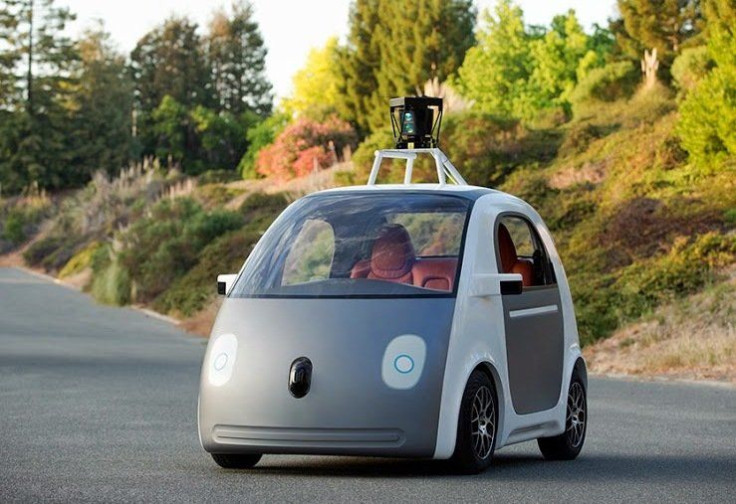FBI Deems Google's Driverless Cars 'Game-Changing' For Law Enforcement

American consumers may ultimately benefit from driverless cars, such as were unveiled in prototype form recently, but the FBI is already considering the scenarios in which a vehicle without a steering wheel, accelerator or brake pedal could be used by criminals.
Google Inc. (NASDAQ:GOOGL) released a prototype of the first-ever driverless electric car Tuesday, with a design that looks poised to transport George Jetson, of 20th century cartoon fame, to his futuristic office. Google's car is summoned by smartphone, picking up commuters and ferrying them to their destination without any manual controls other than a large red Stop button for emergencies.
“They’ll be designed to operate safely and autonomously without requiring human intervention,” the company explained in a blog post. “Our software and sensors do all the work. The vehicle will be very basic but they will take you want to go with the push of a button.”
A restricted FBI report obtained by the Guardian newspaper, though, proves that such progress is not expected to come without a cost. The report calls Google’s driverless car a “game changing” piece of technology that “will have a high impact on transforming what both law enforcement and its adversaries can operationally do with a car.”
One of the bureau’s chief concerns seems to be that criminals on the run will now be able to focus on tasks other than driving. Shooting at pursuers is a possibility, they say, with the “Multitasking” section of the report advising that “bad actors will be able to conduct tasks that require use of both hands or taking one’s eyes off the road which would be impossible today.”
There’s also a concern that tech-literate criminals will be able to override the car’s functions. To navigate, the cars use laser-radar technology, video cameras, GPS and other features that make the car stop at red lights, for instance, or make a lane change.
“Autonomy … will make mobility more efficient, but will also open up greater possibilities for dual-use applications and ways for a car to be more of a potential lethal weapon than it is today,” the report states.
However, the FBI report wasn’t only pessimistic. The bureau acknowledged the possibility that self-driving cars will reduce traffic accidents and cut travel time for emergency vehicles. The bureau's Directorate of Intelligence, which produced the report, also said that if Congress approves autonomous cars for public use, which could happen within the next five to seven years, law enforcement will have new, distinct advantages.
“Surveillance will be made more effective and easier, with less of a chance that a patrol car will lose sight of a target vehicle,” the report went on. “In addition, algorithms can control the distance that the patrol car is behind the target to avoid detection or intentionally have a patrol car make opposite turns at intersections, yet successfully meet up at later points with the target.”
The new challenge comes just months after the FBI announced its intention to hire thousands of new agents whose job it will be to prevent black-hat hacking and other forms of cybercrime. Director James Comey admitted earlier this year that the bureau needs help with hacking so badly that officials are grappling with the question of whether to hire employees who smoke marijuana, a popular drug in the hacking community.
“We have changed both our mindset and the way we do business,” Comey said at the time.
© Copyright IBTimes 2024. All rights reserved.











